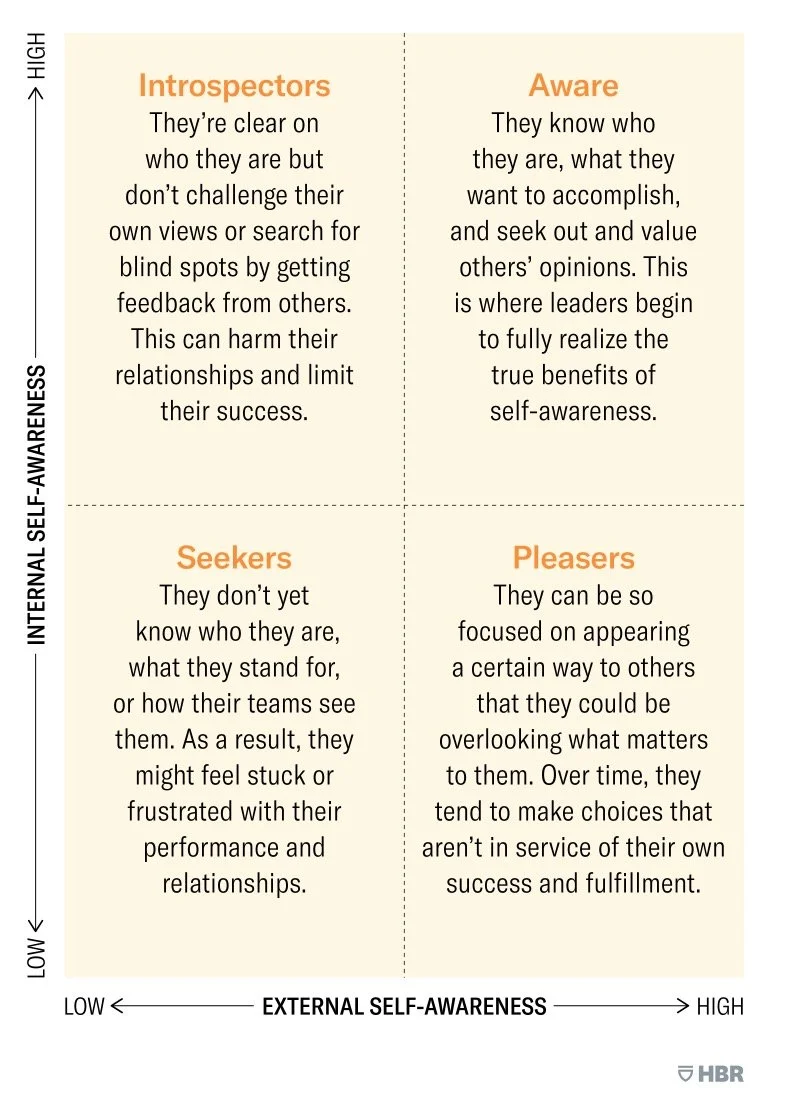What is Self-Awareness & Why It’s Important
The dark truth of being self-aware
Do you ever feel like you don’t know yourself as well as you should? Or that you’re not sure how to handle your emotions in a healthy way?
If so, you’re not alone. Self-awareness is a skill that takes time and practice to develop, but it’s one of the most important things you can do for your personal and professional growth.
In this blog post, we’ll explore the definition of self-awareness, why it’s important, and some specific techniques you can use to improve your own self-awareness.
By the end of this post, you’ll have a better understanding of yourself and how to use your self-awareness to live a more fulfilling life.
What is Self-Awareness?
Self-awareness is the ability to see yourself clearly and understand who you are. You can look inwards and reflect on your identity. You consider yourself and how you act in line with your standards and goals.
What Are the Benefits of Self-Awareness?
You can experience many benefits from being self-aware, such as:
Better communication
More self-confidence
Improved relationships
Better job satisfaction
Higher levels of happiness
Plus, many more
What Are the Types of Self-Awareness?
There are two broad categories of self-awareness: internal and external.
Internal Awareness
Understanding your values, passions, and aspirations and how well they align with your behavior and response to your environment. Internal self-awareness is associated with higher job and relationship status and overall happiness.
External Awareness
External awareness refers to how aware you are of how others view you.
You might think that if you’re high in one, you would be high in the other. But Eurich’s research found no relationship between them. Instead, she identifies four archetypes of self-awareness.
Are You Self-Aware?
Chances are you think yes. But the research says no.
Eurich conducted surveyed thousands of people and studied over 800 studies. Her results were shocking.
According to her research, 95% of people think they’re self-aware. In reality, only 10–15% of people are self-aware.
The difference is significant.
“We’re all becoming more self-absorbed and less self-aware. We need to gently stop assuming we’re already self-aware. Every one of us probably has more work to do than we think.” — Tasha Eurich
Why is There a Gap?
Eurich explains three common reasons why there’s a discrepancy.
Knowledge blindness
Similar to the Dunning-Kruger Effect, you overestimate your knowledge. You think that you know more than you actually do. The more of an expert you think you are, the more confident you are in your abilities. You become overconfident in your ability to predict the future.
A good way to combat this is the beginner’s mindset. Remember, you are always learning. Come to the table with the attitude you are a beginner.
2. Emotion blindness
You have a sense of overconfidence in your emotions. On a scale of 1–10, 1 being the worst 10 being the best, how happy are you right now? In reality, you’re answering what mood you are in.
You tend to overestimate and guess higher. It’s more situational than not. If you found twenty bucks on the street, you would rate yourself happier than the ten minutes before you found the money.
3. Behavior blindness
When it comes to judging your behavior, you’re not as objective as you think you are. Chances are you overestimate parts of your behavior and personality when it’s not true.
It’s an innate blindspot all humans have.
Photo by Josh Calabrese on Unsplash
How Can You Improve Self-Awareness?
Internal: Introspection isn’t a bad thing, but most people approach it the wrong way. Eurich found that most people who introspected were “less happy, more stressed, more depressed, more anxious, less in control of their lives and less happy in their jobs.”
The problem with introspection is that most people ask, “Why?” when they should ask, “What?” When you focus on ‘why,’ you end up falling down the rabbit hole into self-pity. If you ask ‘what,’ you receive solid solutions for how to improve.
External: Eurich suggested finding a trusted confidante who can be a loving critic to improve your external awareness.
Take them out to lunch and ask them for feedback. As non-defensively as possible, listen to them and thank them.
How Do You Move Forward?
The first step to becoming self-aware is to become aware of the fact you aren’t self-aware. I’m not as self-aware as I think I am, but I’m getting better.
By identifying where you fall on the self-awareness scale, you can pinpoint where your strengths and weaknesses are and make moves to improve.
You can take a sample test of Eurich’s self-awareness assessment on her site.
Self-awareness is a journey. You may never fully reach enlightenment unless you’re a monk, but you can get darn close.
Congratulations on taking the first step.
Ready to level yourself up and become the best version of yourself? Download my free journaling guide now.
Maggie Kelly is a freelance writer who writes about mental health, self-help, and psychology. Contact at maggiepkelly@gmail.com



